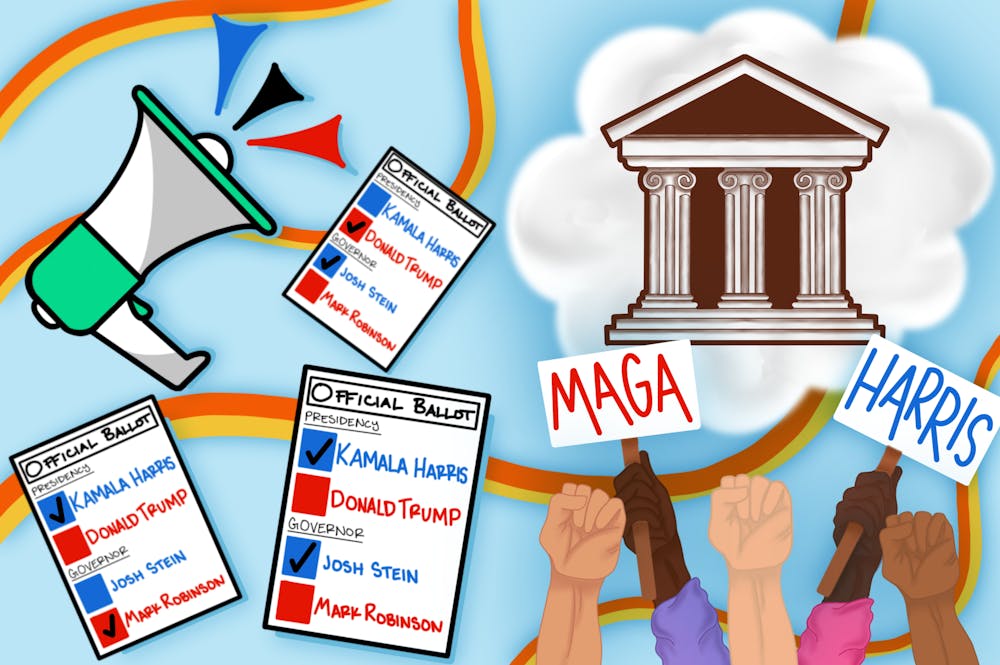In the weeks leading up to Nov. 5, the energy surrounding the presidency was frenetic and urgent, as if this year’s ballot held not just candidates but the very future of democracy. This attitude was held by democratic politicians, activists and everyday people that came to head in the immediate aftermath of the election. Donald Trump’s win echoed throughout social media like a death knell, with thousands of people mourning the loss of a blue presidency and the security of their civil rights.
However, this kind of doomsday rhetoric and the huge emotive reaction it garners after a lost election is an unproductive use of everyone’s time. It’s an unsuccessful call to action when campaigning and a narrow, victimizing perspective to take toward your own or others’ political and civic well-being. If this recent election has taught us anything, it is that the state of American politics cannot hinge on an every-four-years electoral tradition.
And yet, most Americans operate under the earnest belief that they’re most needed and seemingly most empowered when they head to the polls; it’s an impression that has been propped by a largely disengaged society that emphasizes the visibility, and somewhat exaggerated, power of the head of the state.
Voting is an easy way to get politically involved because it asks nothing of us except a few moments of our time and enough attention to recognize the names going down the ballot — a suitably small effort for an apathetic culture.
Even placing voting as the paramount act of civic engagement, most of us fail to do this in its entirety. State politics and policies, which arguably matter more for the day-to-day lives of individuals than national ones, are significantly undervalued. Knowing your attorney general and district attorney and being aware of their platforms toward crime and punishment is directly empowering, for example, especially for individuals invested in incarceration or criminal justice reform.
These roles don’t get nearly as much attention across the political spectrum despite the immediate influence they have on the political ecosystem of a state. On the local scale, attending town hall meetings and learning about small town politicians and their platforms is another way of getting involved through voting that is far closer to home.
But if the only civil act we care about is voting, what’s next? Waiting for the next election isn’t feasible, but it’s what most Americans will do, including those most afraid of what the next presidential term will bring.
This perspective is one of learned helplessness that has become a fixed social reality, so much so that many Americans are not aware of any possible alternatives. For young people especially, social media has made it clear that liberals are ignorant to their personal political agency, especially in their own neighborhoods.
Instead of waiting for the perfect presidential candidate, voters should become actively involved in their communities. Community organizing is an accessible way to exert individual social and political power in shared, connected spaces. Unlike voting, community organizing requires far more from its participants and can actually mediate the harmful effects of a president’s rhetoric or federal policies. Talking to people, getting to know your neighbors and spending time with them builds necessary care and support networks that are essential to the healthy communities liberals romanticize and fear for.




